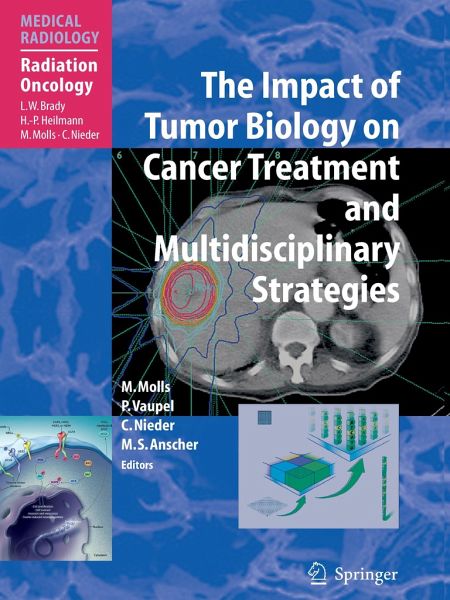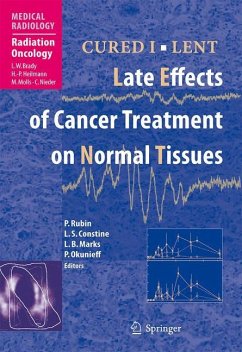
The Impact of Tumor Biology on Cancer Treatment and Multidisciplinary Strategies

PAYBACK Punkte
42 °P sammeln!
Te rapidly changing concepts in radiation oncology with the development of more precise - strumentation for delivery of radiation therapy and a greater emphasis on hypofractionation technologies require a very intimate knowledge of tumor biology and the infuence of various biologic factors on dose distribution within the tumor in terms of homogeneity as well as prev- tion of any late efects on normal tissue surrounding the tumor itself. Not only are these major factors in clinical practice but also the known factors of inhomogeneity of cancer cells, the impact of microenvironment in terms of r...
Te rapidly changing concepts in radiation oncology with the development of more precise - strumentation for delivery of radiation therapy and a greater emphasis on hypofractionation technologies require a very intimate knowledge of tumor biology and the infuence of various biologic factors on dose distribution within the tumor in terms of homogeneity as well as prev- tion of any late efects on normal tissue surrounding the tumor itself. Not only are these major factors in clinical practice but also the known factors of inhomogeneity of cancer cells, the impact of microenvironment in terms of radiation efect, and host factors make it mandatory to design therapeutic strategies to improve the outcome and to diminish any potential short-term or lo- term risks from the radiation therapy. Te authors have developed an outstanding text that deals with these strategies and how they would impact on established and emerging new technologies and treatment. Te context of the presentations within a multidisciplinary combined modality therapy program is incredibly - portant. In this volume, various topics are reviewed including tumor genesis, cell proliferation, - giogenesis, the physiologic characteristics of malignant tissues, invasion and adhesion, the route and role pursued in the development of metastasis, and the role of the human immune system in cancer prevention and development.












